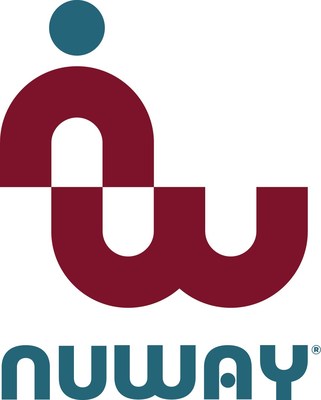NUWAY®, Minnesota’s largest non-profit extended care addiction and mental healthcare treatment provider is partnering with The Center for Practice Transformation at the University of Minnesota to study the effects of recovery housing participation on addiction treatment and mental health outcomes.
MINNEAPOLIS, June 23, 2020 /PRNewswire/ -- NUWAY®, Minnesota's largest non-profit extended care addiction and mental healthcare treatment provider is partnering with The Center for Practice Transformation at the University of Minnesota (CPT) to study the effects of recovery housing participation on addiction treatment and mental health outcomes. The goal of the study is to identify differences in substance use, mental health, and treatment engagement outcomes between clients utilizing high-quality recovery housing and those living elsewhere during treatment.
The study, started in the fall of 2019, compares data from two groups of NUWAY client volunteers. Both groups receive evidence-based addiction treatment and mental healthcare from NUWAY, but only one group elects to utilize available recovery housing. Clients who volunteer for the study are given intake and discharge surveys by NUWAY staff. Researchers from CPT conduct follow-up surveys with participants three months after discharge and analyze the data. "NUWAY is exceptional in its pursuit of treatment outcomes research that is both empirically sound and recovery-oriented. Their efforts to identify effective practice align with our Center's mission and we are thrilled to be NUWAY's partner in this important project," says CPT research associate, Tanya Freedland, MPS, LADC.
Information gleaned from the study will inform NUWAY's Recovery In Supportive Environments (R.I.S.E.) model of care that NUWAY launched in 2013. R.I.S.E. is designed to help NUWAY clients access a full continuum of care, including evidence-based addiction and mental health treatment, high-quality recovery housing, peer support services, and easier access to other community recovery resources. R.I.S.E. aims to improve client outcomes by bridging traditional treatment gaps that can lead to relapse.
Helping clients access high-quality, supportive recovery housing is one of the foundational components of the R.I.S.E. approach. NUWAY has developed strong relationships with recovery housing providers to make it easier for its clients to find housing options that best meet their needs. Research indicates that appropriate recovery housing gives clients with substance use disorders a better chance of achieving long-term recovery than those who do not live in recovery-oriented environments.
"The Substance Abuse and Mental Health Services Administration, the Surgeon General, and treatment professionals around the country state the importance of recovery housing. But few people have access to high-quality recovery housing and peer support — especially those with few financial resources," says Ken Roberts, NUWAY's Chief Clinical Officer. "Having a safe, stable, and supportive place to live makes a significant difference in treatment outcomes and helps people stay sober, and in treatment for a longer period so they can establish a solid foundation in recovery." NUWAY partners with carefully selected and quality-managed recovery residences that meet locally and nationally established standards. This practice has stimulated the development of new housing options and improved overall recovery housing stock for Minnesotans.
"The central focus of the study is to confirm the effectiveness of the R.I.S.E. model," said Amy Dellwo, Vice President of Public Policy, at NUWAY. "The R.I.S.E. model ensures that clients have a safe recovery environment while they are in treatment. It also helps smooth transitions for clients when leaving treatment, and it helps them develop their recovery capital."
An early observation from the study is that nearly half of the participants reported experiencing homelessness in the six months prior to admitting to outpatient treatment. Additionally, preliminary research findings are showing that the effect of living in a recovery residence is demonstrated to be statistically significant. Clients who were not living in a recovery residence were predicted to be over five times more likely to engage in substance use while in treatment compared to those clients who were living in a recovery residence. "Many NUWAY clients are 'housing insecure' at admission, which means they may be couch surfing, cohabiting as dependents, or living on the street," explains Dellwo. Often these stressful environments trigger relapses. "Going to the structured and stable environment of a well-run recovery residence where they receive peer support, are required to stay sober, and live with other people in recovery makes a big difference."
NUWAY hopes to use study findings to support recovery-friendly policies. "Every day, we see hundreds of people get the treatment, housing, and community supports they need to stay on the path of recovery," says Dellwo. "We hope that this study, and ones like it, give NUWAY and other behavioral healthcare providers the data needed to advocate for ongoing support and funding from our policymakers."
Established in 1966, NUWAY is a non-profit, evidence-based addiction and co-occurring mental health treatment provider specializing in extended care and accredited by The Joint Commission. With residential and outpatient treatment facilities throughout Minnesota, NUWAY helps clients access a coordinated continuum of care that includes treatment, recovery housing, peer support services, and other community resources. NUWAY offers medium-intensity residential treatment for adult men, women and transgender individuals, and intensive outpatient treatment with optional recovery housing for individuals of all genders. Lengths of stay are individualized to client's needs. NUWAY is GLBTQIA+, and medication-assisted treatment safe and friendly.
For more information contact Monique Bourgeois, NUWAY Chief Community Relations Officer, at 651-964-3680.
![]() View original content to download multimedia:http://www.prnewswire.com/news-releases/nuway-and-the-center-for-practice-transformation-at-the-university-of-minnesota-research-the-effects-of-quality-managed-recovery-housing-on-addiction-treatment-outcomes-301081413.html
View original content to download multimedia:http://www.prnewswire.com/news-releases/nuway-and-the-center-for-practice-transformation-at-the-university-of-minnesota-research-the-effects-of-quality-managed-recovery-housing-on-addiction-treatment-outcomes-301081413.html
SOURCE NUWAY





